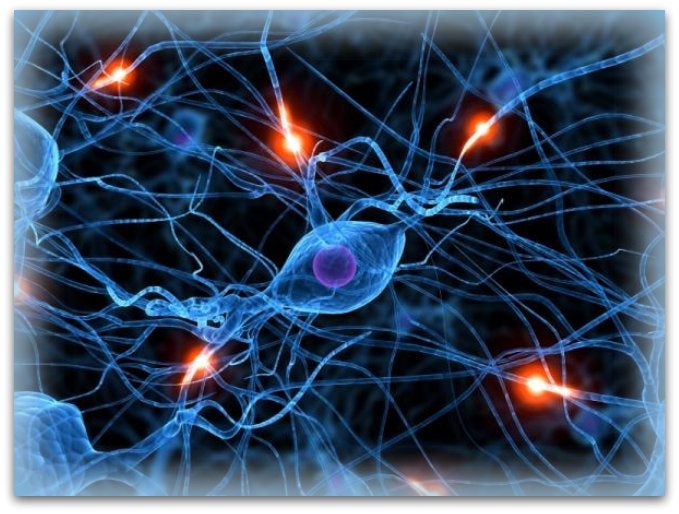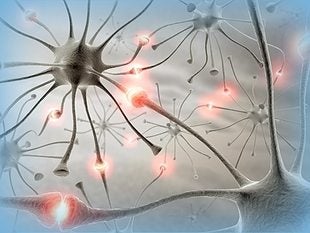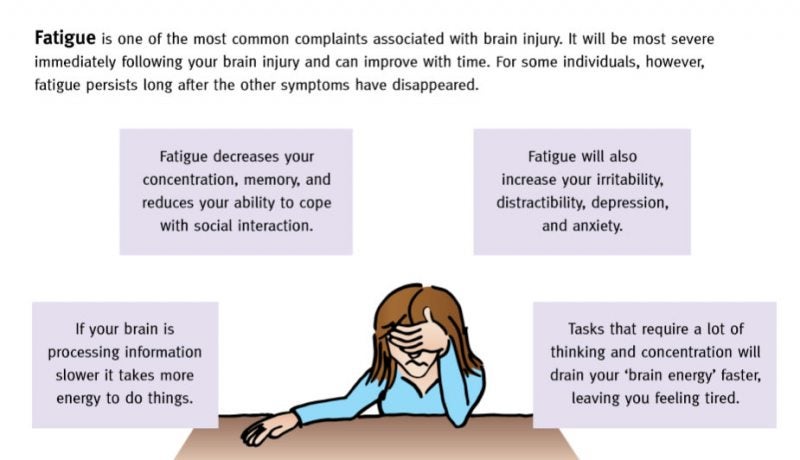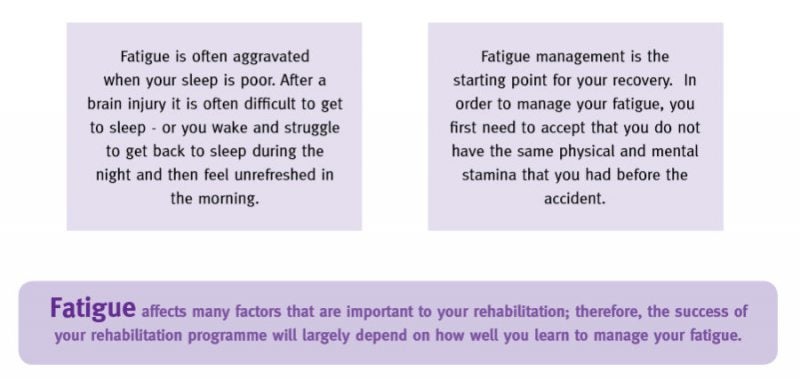Signals that the battery is running low
At some point during the day a brain injured person may get noticable signals that their battery is running low.
Signs of fatigue can be a drawn, a tense look, a pale or greyish pallor, glazed eyes, irritability and, ironically, too much activity. (the person may become restless, more distracted or more talkative and make an increased number of mistakes.)
For example, he notices that he is tired, makes more mistakes or loses concentration. These are all signs that let you know that the bottom of the battery is in sight. It's time to take a rest so that the battery can charge again.
Signals That It's Time to Rest
Pay attention to bodily signals
Do you get headaches, do you feel dizzy or feel a tension in neck and shoulders? Is the pace going down or do you make more mistakes than usual?
Check in with your thoughts and feelings
Are you feeling cranky or irritated? Have you lost interest in something you normally enjoy? Do you have feelings of hopelessness or thoughts that say "I can't take it anymore?" or "I can't do this?"
These are signs that you need to stop what you're doing and rest.
When your battery is low it can be very hard to determine if you're experiencing these signals. So, it can be helpful to ask a family member or friend if they notice any of these signs in your behavior.
Sleeping disorders
Many brain injured persons suffer from sleeping disorders as well.
It can be hard to distinguish between fatigue that comes from a damaged battery and the fatigue that comes from a sleep disorder.
Read the factsheet about sleeping issues on synapse.org.au.
Or read our page on CSAS.
Lack of sleep has a negative effect on our cognition, mood, energy levels and appetite. The average person needs eight hours of sleep a night or they will suffer from decreased concentration, energy and many other problems. These effects are multiplied many times by a brain injury.
Unfortunately, brain injury can often lead to a sleep disorder. The American Academy of Neurology reports that as many as 40-65% of people with mild traumatic brain injury complain of insomnia.
Sleep disorders can be hard to detect because people with brain injuries can also have a fatigue disorder. Although some may have problems with getting too much sleep, the usual type of sleep disorder is trouble sleeping at night, particularly problems with the timing or amount of sleep.
These people are very easily awakened, sometimes dozens of times a night. Sleep can be light and sufferers may find it very difficult to go back to sleep once they've been woken up despite feeling very tired.
Research suggests that a major cause is a disruption to normal releases of certain neurotransmitters in the brain which causes "sleep fragmentation".
There can be a variety of other causes which disrupts your sleep. Discomfort from a headace, neck pain, or back pain can make it hard to get to sleep. Depression is a common feature after a brain injury and survivors may find they fall asleep easily but wake up several hours before dawn, unable to sleep again. Anxiety and inability to handle stress are other problems that many people experience. Negative thoughts whirring through the mind will usually make it very hard to fall asleep.







